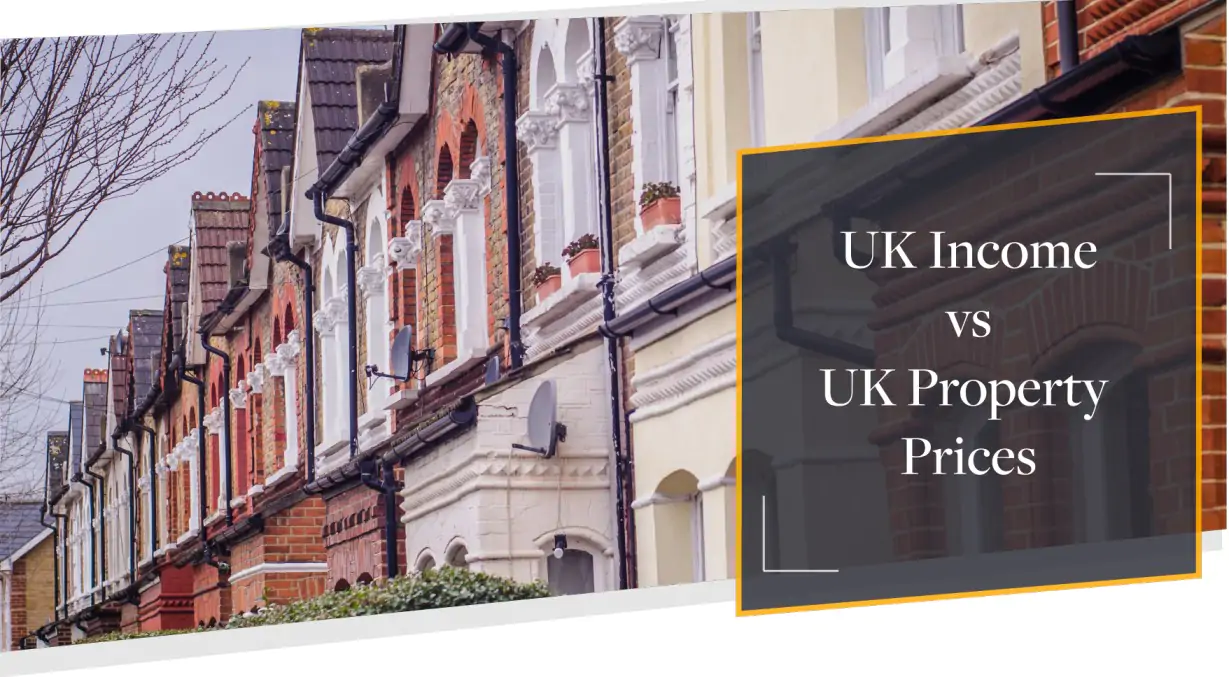
February 26th, 2020
For years there has been a dispute over house prices rocketing but the average person’s income not reflecting that incline. Some feel that people should make more money while others would just prefer to see the house prices lower to an affordable rate. While both or neither of these things could happen, one thing that we can agree on is that over the last few years, there hasn’t been any sort of correlation between income and property price. However, we can’t just take peoples words for it, anyone can say anything. That is why we’ve taken to the government number to make sure that we’re right.
Data that dates back to 1997 shows the truth behind the average house prices and income throughout the years.
Property prices and Income in England
After seeing the astonishing amount that the property prices have grown over the years, we had to make something that made it easy to understand.
Data for 1997
Taking a look at the data that the UK government and the Office of National Statistics (ONS) publish for use to look at shows the average (median) house price in England in 1997 was a jaw-dropping £59,995. In wales alone, for the same year, the average house price sits at £47,000.
While you might be thinking that you wish you were born in another time, let’s take into account the inflation over that time. So; in today’s money that average house price of £59,995 translates into around £110,015. That’s still pretty good all things considered.
looking at the average income for someone in 1997, this might sound somewhat harsh. During this year, the average income in England was £16,958 which is more or less the starting wage for most 18-19 year old in a skilled job role. Again, in wales, the same average income sat at £15,679.
By updating the number to today’s standards and adjusting for inflation, the average income in England of £16,958 turns into £31,096 this number we won’t feel as bad for those earning a living back then.
So, the average house price sat at almost £60,000 and the average income comes in at £16,958 that would give us a median affordability ration in England of 3.54. This number is important for later.
Data for 2018
In the most up to day version of the income vs house prices reports from the ONS, we can review the averages for 2018.
As for the average house price in England in 2018, the ONS tell us that the jump from £59,995 in 1997, settles at a staggering £239,000. A difference of £129,000 shows that house prices have definitely increased over the years. Even after adjusting the 1997 data in line with inflation, thats a different of £128,985!
In regard to the average income in England in 2018, we do see an increase. However, it sits at £29,872 which means that after adjusting previous data (from 1997) for inflation; the average income has actually gone down.
So, in 2018, the average house price sits at £239,000 while the average income trails behind at £29,872. According to the ONS that means that the affordability ratio is 9.00. this is over double that of 1997.
London, Now vs Then
London has been one of the most versatiale areas in the UK when looking at house prices. It has been home to some of the highest average house prices as far back as 1997 and still holds the title in 2018. While this isn’t surprising, you’d think that the income of those living and working in London would reflect one another.
However, as you can see from the graph above; London’s house price growth far out weights the growth of residents’ income.
Nottingham, Now vs Then
Most see Nottingham as the divide between the North and South of the UK, it sits as a happy medium between the two. There is a huge difference between the prices of a London home a Nottingham home. Often, the price of buying a flat in London equates to the price of buying a home further north.
Looking at the data for Nottingham, the growth of houses prices over the years you can see that it isn’t as dramatic as other locations. However, when comparing this to the growth of the income over the same time period, the difference is quite shocking.



